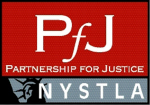 There’s an old Oliver Wendell Holmes maxim we remember from law school – great cases like hard cases make for bad law. Not to quibble with the venerable Justice Holmes, but in our experience as settlement consultants, we have found that this observation is not so true, at least when it comes to mediation. Great cases and not so great ones both make for good mediations, at least when measured by that all-important yardstick of positive financial outcomes.
There’s an old Oliver Wendell Holmes maxim we remember from law school – great cases like hard cases make for bad law. Not to quibble with the venerable Justice Holmes, but in our experience as settlement consultants, we have found that this observation is not so true, at least when it comes to mediation. Great cases and not so great ones both make for good mediations, at least when measured by that all-important yardstick of positive financial outcomes.
Of course, whether your case is a strong one or not will shape your strategy and goals as you head into mediation. With a strong case you will be much less inclined to compromise; your settlement range will be much narrower and you will likely insist on adhering closely to what you think of as full value for the claim. To the extent that you are fully confident about the law and facts of the case, though, there are still significant advantages to be realized from participating in mediation, as we have written in a previous blog post. It’s also important to remember, as we previously discussed here, that whenever you mediate a strong case, you must make sure you’re trial ready before mediation, so the defense fully appreciates how prepared you are to crush them at trial.
But let’s face it – not every case in your office is a sure winner. Every trial lawyer takes on matters where investigation and research turn up potential vulnerabilities in the plaintiff’s case – bad facts turn up in discovery; perhaps the defense has taken a surveillance video that shows your client playing touch football despite a claim of chronic back pain; or maybe you’ve learned that your client will be unfit to take the stand due to his prior history as a child abuser. When any such weakness surfaces in the course of developing your case, mediation becomes more attractive as a means to sidestep jury trial while nonetheless providing a means to secure some settlement value for your client.
From the lawyer’s point of view, mediation provides a means to cull some of the weaker cases from your docket so you can focus your firm’s resources on higher value opportunities. This is why we recommend to our clients that they undertake a periodic review of all pending matters, in order to identify those cases, where a material weakness makes going to trial problematic in some way. From the client’s point of view, mediation may provide a shorter route to recovery, albeit one that is smaller but more certain. Oftentimes, this is a tradeoff that clients are ready to make in the interest of putting a sum certain into their pocket now rather than risking a larger upside in front of a jury.
A recent case we were involved in illustrates how mediation provides a good alternate route to recovery as potential difficulties at trial begin to emerge. The plaintiff in this case was a construction worker who had been injured on the job. The case had to be brought in Westchester County – a jurisdiction not generally favorable to plaintiffs. The plaintiff had filed a motion for summary judgment on liability and the defendant had filed a motion to dismiss. Our client assessed the probabilities as a 30% percent chance for winning the motion for summary judgment as against a 35% probability that defense’s motion to dismiss would be granted. In any event the defense only carried $1 million of insurance coverage. Given the limited upside and the various weaknesses in the case, this was easy to identify as a good candidate for mediation. The plaintiff went into mediation with an initial target of $700,000 to $800,000 but ended up settling at $550,000. This made sense because we were able to provide a structured settlement that enhanced the lifetime value of the plaintiff’s recovery, and brought the financial settlement value into an acceptable range.
When mediation works, everyone walks away happy. In this case, the defense was pleased to cap their expense and exposure at a level well below the full amount of the insurance coverage. At the same time, the plaintiff was happy to achieve finality and closure, avoiding the risk of trial, with a recovery enhanced by a structured settlement. By definition that’s a successful outcome.


[…] week we return our attention to a topic we have discussed previously on the blog (most recently here). It is a question that comes up for consideration just about every time you prepare a case for […]